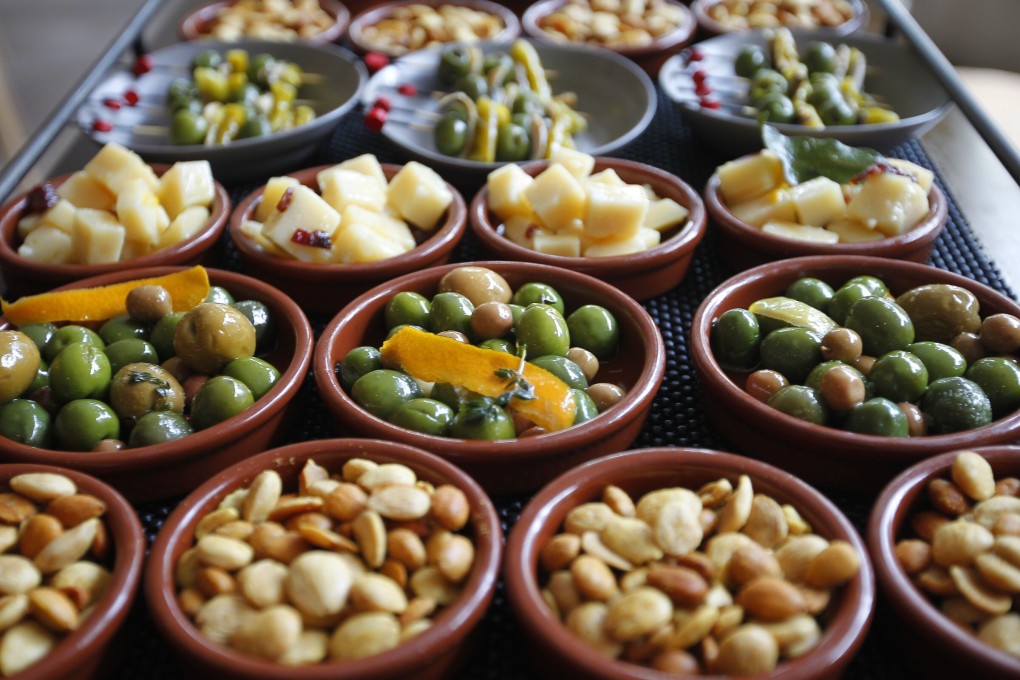How sharing snacks, from tapas to dim sum and meze, feeds a primal need in us all
- The culture of sharing food or snacks from the same plate points to a primal need in us all, say anthropologists
- We trace the long history of sharing snacks from around the world, from the Middle East to Spain, Italy and China

Indulging in small dishes, nibbles and appetisers set in the centre of the table is a communal eating tradition around the world. Friends, relatives and colleagues get together to share from the same plates, often while enjoying a drink.
From the numerous colourful meze dishes of North Africa and the Middle East to Spain’s tapas, with small portions of grilled prawns and expensive jamón, to the bowls of prime black Kalamata olives enjoyed in Greece, and Italy’s appetisers of mozzarella finger foods, fried vegetables and bruschetta – grilled bread with olive oil – these savoury bites are often the substitute for a whole meal.
There are similar traditions in Asia, such as the baskets of dim sum popular in Hong Kong, and a variety of dishes offer a shared experience at home or in restaurants throughout China.
This phenomenon points to a common, primeval need, anthropologists say. People who share from the same plate are believed to have strong ties or are eager to bond.

Sharing dishes is a way to confirm that individuals belong to a specific community or clan, according to anthropology professor Laura Faranda, from Rome’s Sapienza University. It dates back to the origins of man.
“The habit of eating the same meat morsels is a communal ritual that reinforces the feeling of being part of a social group and of a common set of rules; it’s the founding act of the earliest primitive communities,” she says. “It forges alliances and sets a principle: we eat from the same plate, thus we are equal.”
